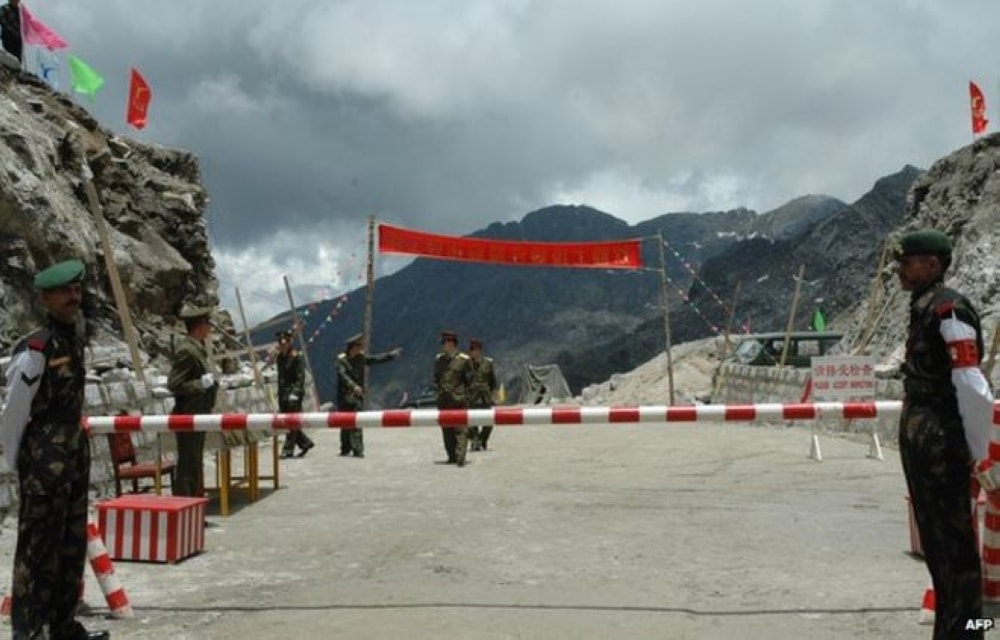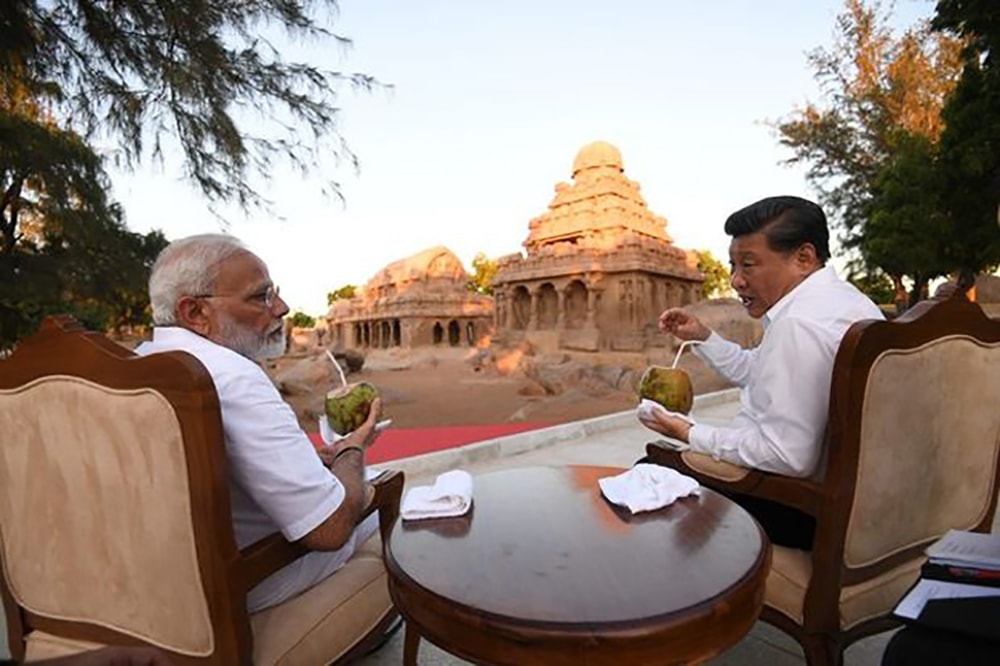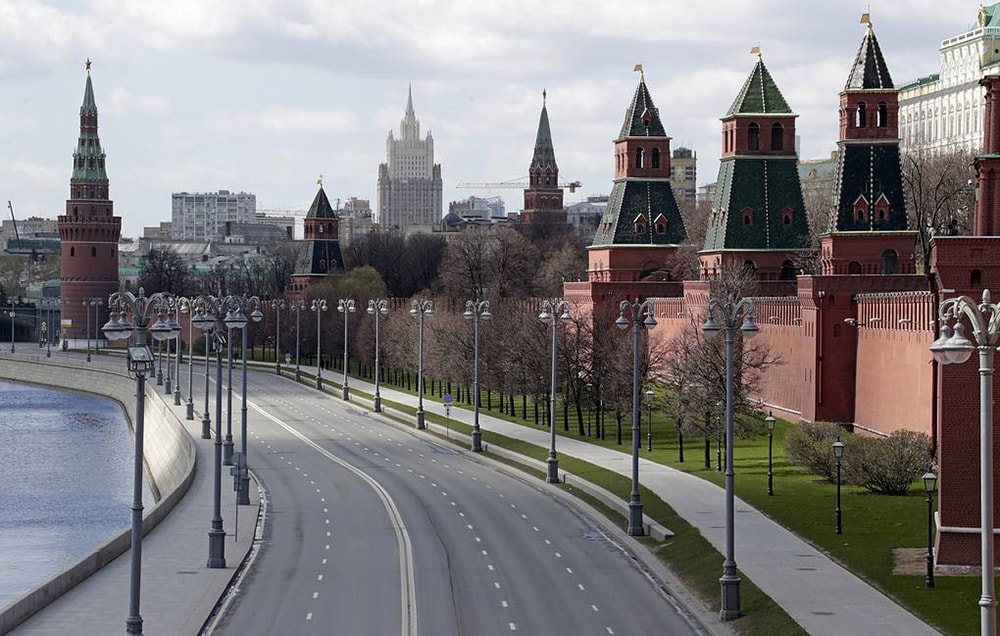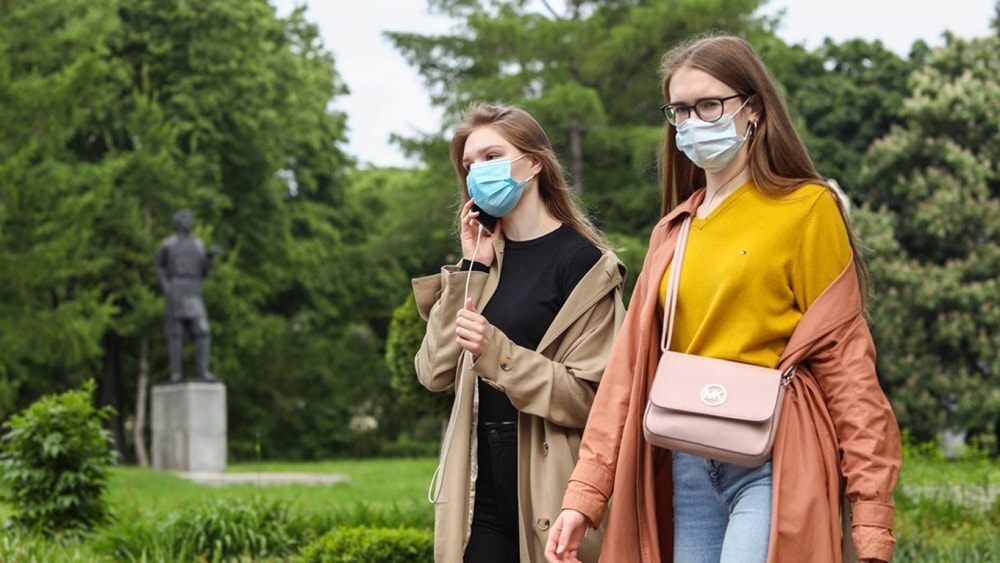World last week: China - India tensions, Russia enters 'new normal' phase
(Baonghean.vn) - New Delhi and Beijing both accuse the other side of crossing the Line of Actual Control (LAC) that separates the two sides; however, now the border tension is not only taking place on the ground with exercises and troop mobilization, but also a full-scale war on the media front. In an exclusive interview with CNN, the Kremlin spokesman explained the concerns and doubts about Russia's handling of the Covid-19 crisis. These are the issues that have received attention in the past week.
INFORMATION WAR
Tensions are rising between China and India along their Himalayan border, one of the world’s longest land borders. Indian and Chinese military officials met at the border on June 6 to “peacefully resolve the situation in the area,” India’s foreign ministry said.
Ahead of the meeting, Chinese television stations broadcast images of the country's military conducting exercises with fighter jets and military vehicles carrying soldiers moving to the border area. Chinese media described the move as "demonstrating China's ability to strengthen border defense when necessary."
 |
| Indian soldiers (foreground) and Chinese soldiers (far) stand guard at a joint checkpoint in the Himalayas. Photo: AFP |
Writing in India’s Hindustan Times, strategic affairs analyst Shishir Gupta said that Chinese media images of People’s Liberation Army (PLA) exercises in the border area are part of a campaign to “overwhelm the enemy to make it lose its weakened negotiating ability.”
Both Chinese President Xi Jinping and Indian Prime Minister Narendra Modi have sought to win public support by projecting nationalism and vowing national greatness. Now, such an approach is being demonstrated in the Chinese coverage of the Himalayan border. Although India on June 6 stressed that tensions had eased, the Indian government changed its tune on June 8 in response to Chinese media reports.
Indian Home Minister Amit Shah declared: “Any incursion into Indian borders will be punished.” Meanwhile, Defence Minister Rajnath Singh stressed: “India’s policy is very clear. We will not harm the honor and integrity of another country. But at the same time, we will not allow any country to violate India’s territorial integrity.”
In an editorial published this week, India’s leading newspaper, The Hindu, said: “Only when Chinese troops withdraw completely will India be satisfied. This will mean more than talks between diplomats. There needs to be a directive from Beijing for the Chinese military to implement this. Otherwise, India must prepare for a prolonged confrontation and military exercises to ensure China withdraws.”
 |
| Prime Minister Narendra Modi (left) and President Xi Jinping during a meeting in 2019. Photo: DC |
While Chinese media has been public about the PLA deployment to persuade India to back down, New Delhi is creating a similar influence by building international relations, linking with other countries currently in dispute with China in the Asia-Pacific region such as Australia and the US.
This Indian strategy has attracted the attention of Beijing. In China’s Global Times on June 9, military analysts predicted that “the ongoing border disagreement is unlikely to end immediately, as specific issues still need to be resolved.” But the actual resolution of the disagreements is unclear, as they date back decades and were largely fueled by both sides’ refusal to accept each other’s overtures and their desire to strengthen their military positions at the border.
SUCCESSFUL CRISIS MANAGEMENT
Russia is one of the countries hardest hit by the Covid-19 pandemic, behind only the United States and Brazil in terms of the number of cases, and its government response to the outbreak has been heavily criticized at home and abroad. Leading Russian doctors have described a severe shortage of medical equipment, and observers have questioned whether Russia is underreporting its death rate.
However, those accusations and criticisms were clarified for the first time by Kremlin spokesman Dmitry Peskov in an exclusive interview with CNN in the middle of last week, affirming that Russia has coped with Covid-19 and that its effective health care system has helped keep the death rate low.
 |
| Deserted view around the Kremlin during the restrictions. Photo: TASS |
Some argue that the pandemic has damaged Putin's image beyond repair. A survey by the Levada Center estimated that Putin's approval ratings had dropped below 60% in April and May - a level never seen before in his two decades in power. Rejecting these arguments, Dmitry Peskov emphasized: "President Putin has repeatedly stated that he does not care about personal ratings. In politics, if you are a true politician, you should not think about personal ratings, because if you only think about them, you cannot make responsible decisions."
Back in March, President Vladimir Putin claimed that the situation in Russia was “under control” and better than any other country. However, just a few weeks later, Russia became the country with the second highest number of Covid-19 infections in the world, forcing the government to postpone a referendum on constitutional changes. Despite the skepticism, for Russia, staying calm is the most important thing, as Mr. Peskov said: “There is nothing wrong, except nCov. Russia is testing as much as possible. The more tests, the more discoveries.”
Russia’s official death toll is also a matter of controversy. It is notably low, and has led to suspicions that Russia is somehow manipulating facts and figures to avoid criticism of the Kremlin. Responding to these assessments, spokesman Dmitry Peskov said that the low death toll is due to the efficiency of the health system.
 |
| Moscow, Russia has begun easing restrictions to prevent the spread of the disease since June 9. Photo: The Moscow Times |
That’s what Russian officials claim, but whether Russia has been successful in dealing with the pandemic remains to be seen. On the other hand, many social media accounts of medical professionals across the country are depicting hospitals struggling to care for patients and their staff. Meanwhile, President Putin’s political opponents are taking aim at what they see as premature claims of success in fighting the pandemic. The opposition has also criticized the government’s controversial decision to send ventilators and other equipment to the United States, even though the virus had not yet “let go” of Russia.
Moscow residents have begun to resume normal activities since June 9, when the lockdown imposed to limit the spread of the disease was lifted after two months, although local authorities still reported more than 1,000 new infections per day.
And while thousands of new cases continue to be recorded, the government's decision to hold a referendum on constitutional changes on July 1 is seen as Russia's final step towards a "new normal", and the Kremlin's plans are not slow.

